The 12th International Islamic Economic Forum Program — Guide about the President of the Republic of Tajikistan Emomali Rahmon
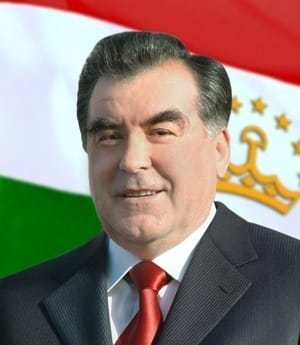
President of the Republic of Tajikistan H.E. Emomali Rahmon
President Emomali Rahmon was born on October 5, 1952 in Dangara district of the Republic of Tajikistan.
From 1971 to 1974 he served in the Pacific Navy Military Force. After the demobilization, he started working at the Lenin collective farm in Dangara.
He graduated from the Faculty of Economics at the Tajik National University in 1982. From 1987 to 1992 he was the Chairman of the Lenin collective farm in Dangara.
In 1990, President Emomali Rahmon was elected as People’s Deputy at the Supreme Council of the Republic of Tajikistan of twelfth convocation. In autumn 1992, he was elected as the Chairman of the Executive Committee of the Council of the People’s Deputies of Kulyab province. Later that year, he was elected as the Chairman of the Supreme Council of the Republic of Tajikistan.
On November 6, 1994, Emomali Rahmon was elected to the post of the President of the Republic of Tajikistan by nation-wide voting.
5 years later, President Emomali Rahmon was re-elected on the alternative basis and by nation-wide voting and assumed an office of the President of the Republic of Tajikistan for a seven-year term.
In 2006, at free, transparent and democratic elections, held on the alternative basis, Emomali Rahmon was elected as the President of the Republic of Tajikistan for a seven-year term.
The greatest achievement of Emomali Rahmon is, undoubtedly, the establishment of lasting peace and national unity. The bitter experience of internal wars in the world suggests that no single state could overcome its opponents on the battlefield and stand at the head of the state machine, management structures and military agencies, using weapons, equipment and its warriors.
By ensuring peace and national unity, he laid a solid foundation for moving towards the economic recovery and the beginning of constructive affairs.
Over twenty years of independence, under the leadership of Emomali Rahmon, Tajikistan made confident steps forward on the path of building an independent democratic state. During this time, the country has had its own flag, emblem and anthem. Principal foundations of statehood – a national army and border troops have emerged and matured. Tajikistan became a member of the authoritative international organizations and established political, economic and cultural ties with most countries in the world. The fundamentals of the constitutional system and public administration were streamlined, national currency was put into circulation and national passport was recognized.
Thus, the historical merits of President Emomali Rahmon consist in the fact that he took over management of the state, prevented the threat of its collapse, extinguished the flames of civil war, restored paralyzed power authorities, particularly the law enforcement bodies, created a national army and border troops, provided the conditions for consolidation of power and state, guaranteed the nation’s peace, returned the refugees and displaced persons back to homeland. He laid a solid foundation for building a new society of Tajikistan, held constitutional reform in the country, created a new Constitution of Tajikistan, provided political and legal basis for signing General Agreement on the Establishment of Peace and National Accord on June 27, 1997. He also brought peace between Tajiks, which was instructive experience for the world community. He created the conditions for national revival, marked the beginning of creative works, radically improved the socio-economic situation of the people, eliminated the threat of hunger and contributed to the growth of political authority of the state on the international arena.
At the new stage of constructing young Tajik state, a fortune bestowed upon the ancient Tajik nation unique historical personality – President Emomali Rahmon – the person, who represents the highest qualities – justice, generosity, courage, compassion and unique ability to unite the people. It is the combination of these qualities that has brought society to a high level of self-knowledge.











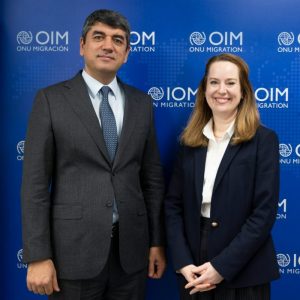 Tajikistan and IOM Discuss Migration Cooperation
Tajikistan and IOM Discuss Migration Cooperation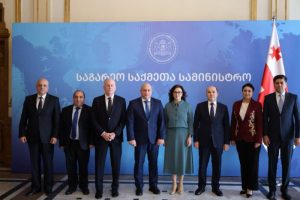 Tajikistan and Georgia Hold Deputy Minister-Level Political Consultations in Tbilisi
Tajikistan and Georgia Hold Deputy Minister-Level Political Consultations in Tbilisi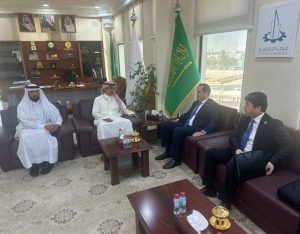 Tajikistan and Saudi Arabia’s Qassim Region Move to Deepen Private Sector Ties
Tajikistan and Saudi Arabia’s Qassim Region Move to Deepen Private Sector Ties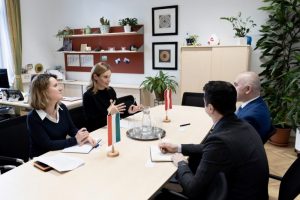 Tajikistan and Austria Review Cooperation Plan for 2026
Tajikistan and Austria Review Cooperation Plan for 2026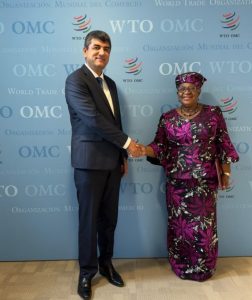 Tajikistan Discusses WTO Commitments and Ministerial Conference Preparations
Tajikistan Discusses WTO Commitments and Ministerial Conference Preparations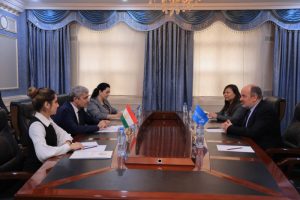 Tajikistan, UNICEF Review Joint Programs on Child and Youth Development
Tajikistan, UNICEF Review Joint Programs on Child and Youth Development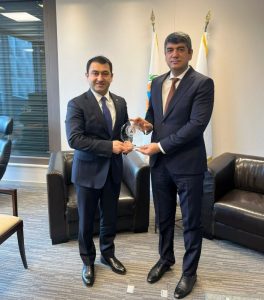 Tajikistan–ICDO Cooperation Discussed
Tajikistan–ICDO Cooperation Discussed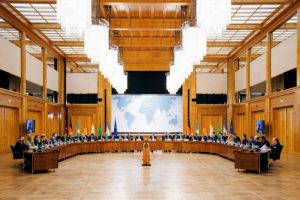 Tajikistan Highlights Investment Potential at C5+1 Economic Roundtable in Berlin
Tajikistan Highlights Investment Potential at C5+1 Economic Roundtable in Berlin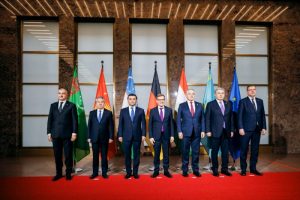 Tajikistan Participates in First Central Asia–Germany “C5+1” Foreign Ministers’ Meeting in Berlin
Tajikistan Participates in First Central Asia–Germany “C5+1” Foreign Ministers’ Meeting in Berlin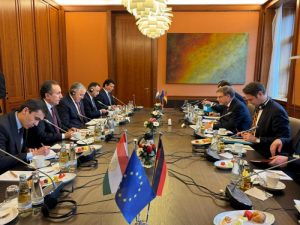 Tajikistan and Germany Discuss Expansion of Bilateral Relations in Berlin
Tajikistan and Germany Discuss Expansion of Bilateral Relations in Berlin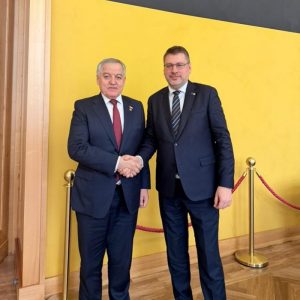 Tajikistan-EU Cooperation Discussed in Berlin
Tajikistan-EU Cooperation Discussed in Berlin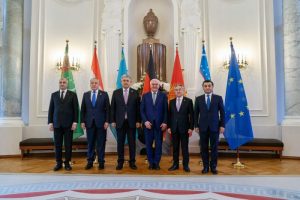 Federal President of Germany Receives Central Asian Foreign Ministers in C5+1 Format
Federal President of Germany Receives Central Asian Foreign Ministers in C5+1 Format














